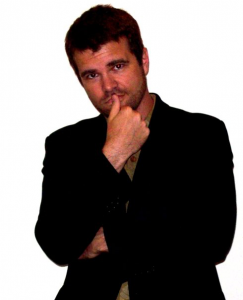 I’ve had a problem since teenhood, when I first began buying entire albums* of music.
I’ve had a problem since teenhood, when I first began buying entire albums* of music.
My problem persists even as digital formats allow us to purchase individual songs rather than entire albums: almost invariably my favorite song from an album or by a band is not one of those that get released as a single, or those that make it big if they are released.
My favorite Garbage song is not the grump-goth favorite “Only Happy When It Rains;” it’s a tie between “As Heaven is Wide” and “Hammering in my Head.” My favorite Kenny Loggins song? “Heaven Helps,” not “Footloose” or “Danger Zone.” I like Mix-A-Lot’s “My Hooptie” better than “Baby Got Back.” From the new Paramore album, the Alison Krauss-esque “Hate to See Your Heart Break” is my favorite. (There might be a Letter H theme going on here…)
So, when I see Jacqueline Sahagian‘s list of “10 Better Books by the Authors You Read in School,” I felt a glimmer of recognition. Often, an artist’s best work (at least in someone’s opinion) isn’t the most famous.
You can check out the rest of Sahagian’s list here, but one of her suggestions resonated deeply with me, so bear with me while I rant—Cat’s Cradle is by far Kurt Vonnegut’s best book.
Slaughterhouse Five is, as Vonnegut apologized, “short and jumbled and jangled” and I feel its popularity is largely due to the fact it seems transgressive. In an age where transgression is often hailed as the highest achievement of literature, not being transgressive is ironically a form of genuine transgression.
And, as a confused piece of emotional therapy on Vonnegut’s part, S5 contrasts sharply with Cradle‘s beautiful writing, its tight and satisfying (if horrifying) storyline, and its genuine science fiction.
Let’s face it: Billy Pilgrim’s time-jumping in S5 is clutzy science fantasy, particularly so for the usually astute Vonnegut, and it gives the entire novel a sense of being a desperate attempt on Vonnegut’s part to escape writing a memoir of his experience of the bombing of Dresden.
Lastly, S5‘s point about the perils of militarization and war are far better served by that final, ominous AH-WHOOM than by the flippy-floppy musings in S5.
Okay, rant done. So it goes…
_
* Yes, albums. Albums are the collections of audio. CD, cassette, and vinyl “records” are formats on which those albums are presented. It’s similar to the relationship between books and the formats of scroll, codex, e-book, and audiobook.

Alric the Red
January 27, 2015 at 10:28 am
I’m glad you justified out the use of the word “album.” I’ve heard people remark on the use of the word as somehow inaccurate these days. But if they knew the source of the term, they’d recognize the truth in what you said. The term “album” dates back to the time of 78s. Some artists would release a collection of songs on 78s, and they’d come together in a book of album sleeves, and it was referred to as an album, like a photo album, but it would have these 78 records instead of photos. The term carried over to the 33 vinyl pressings.